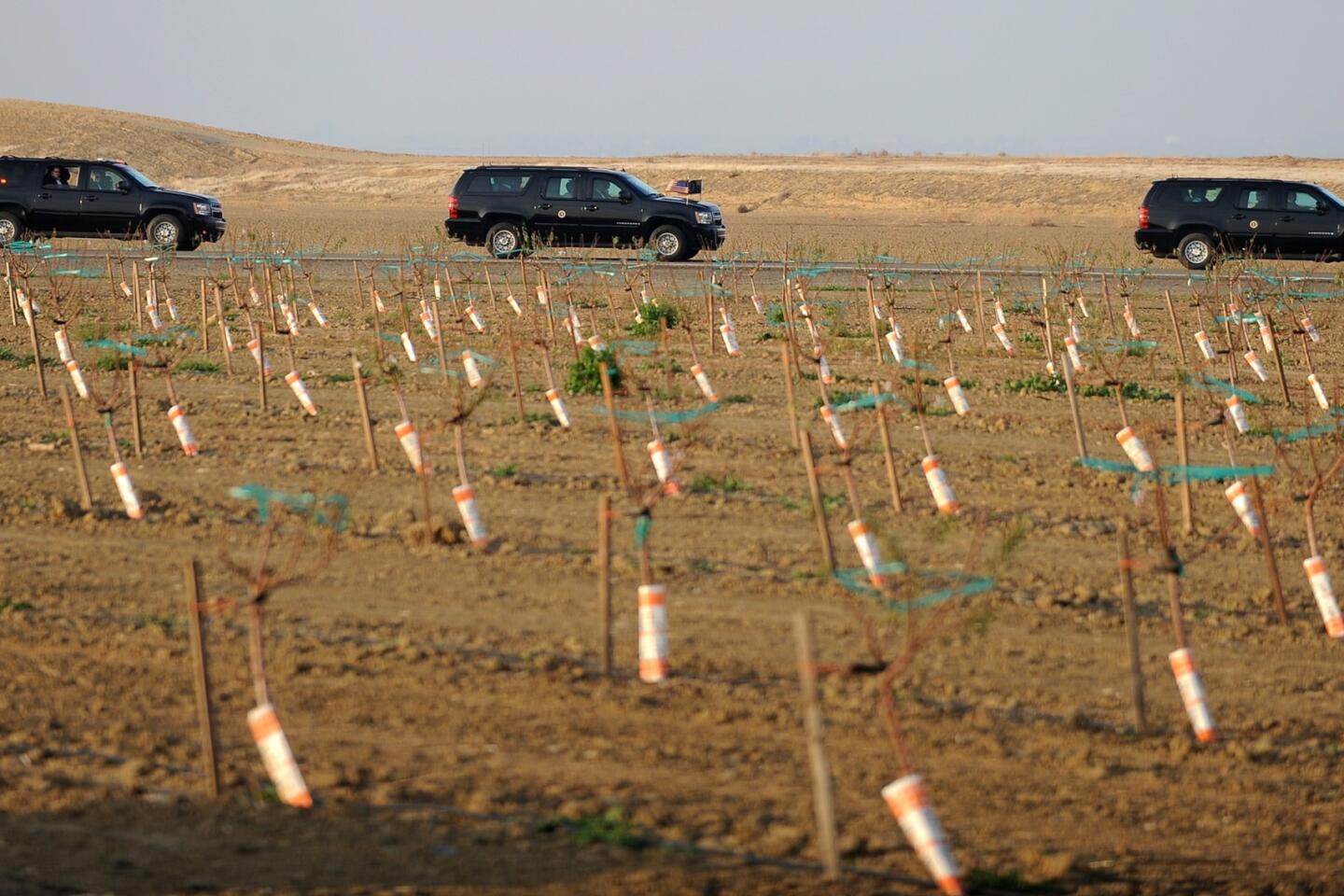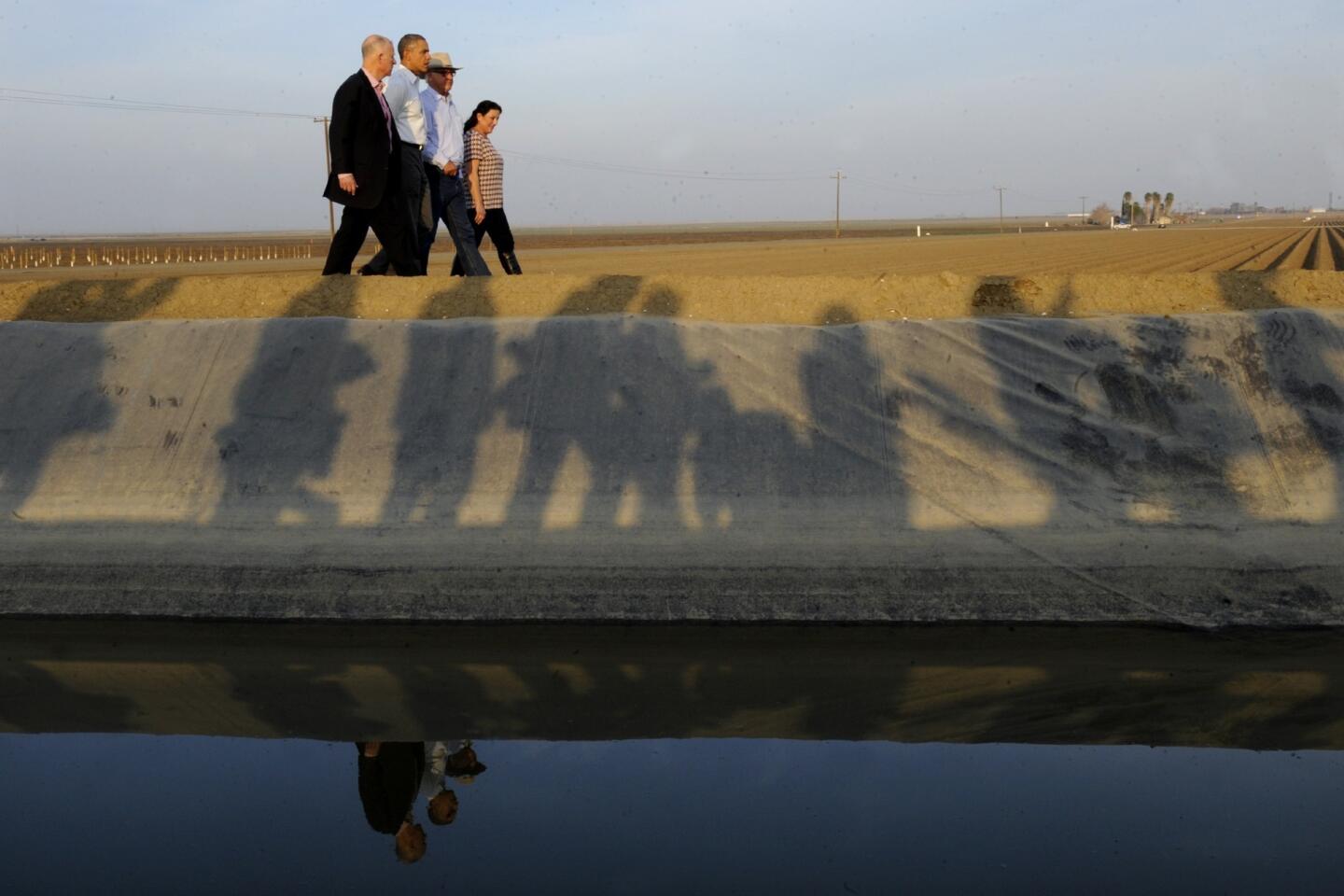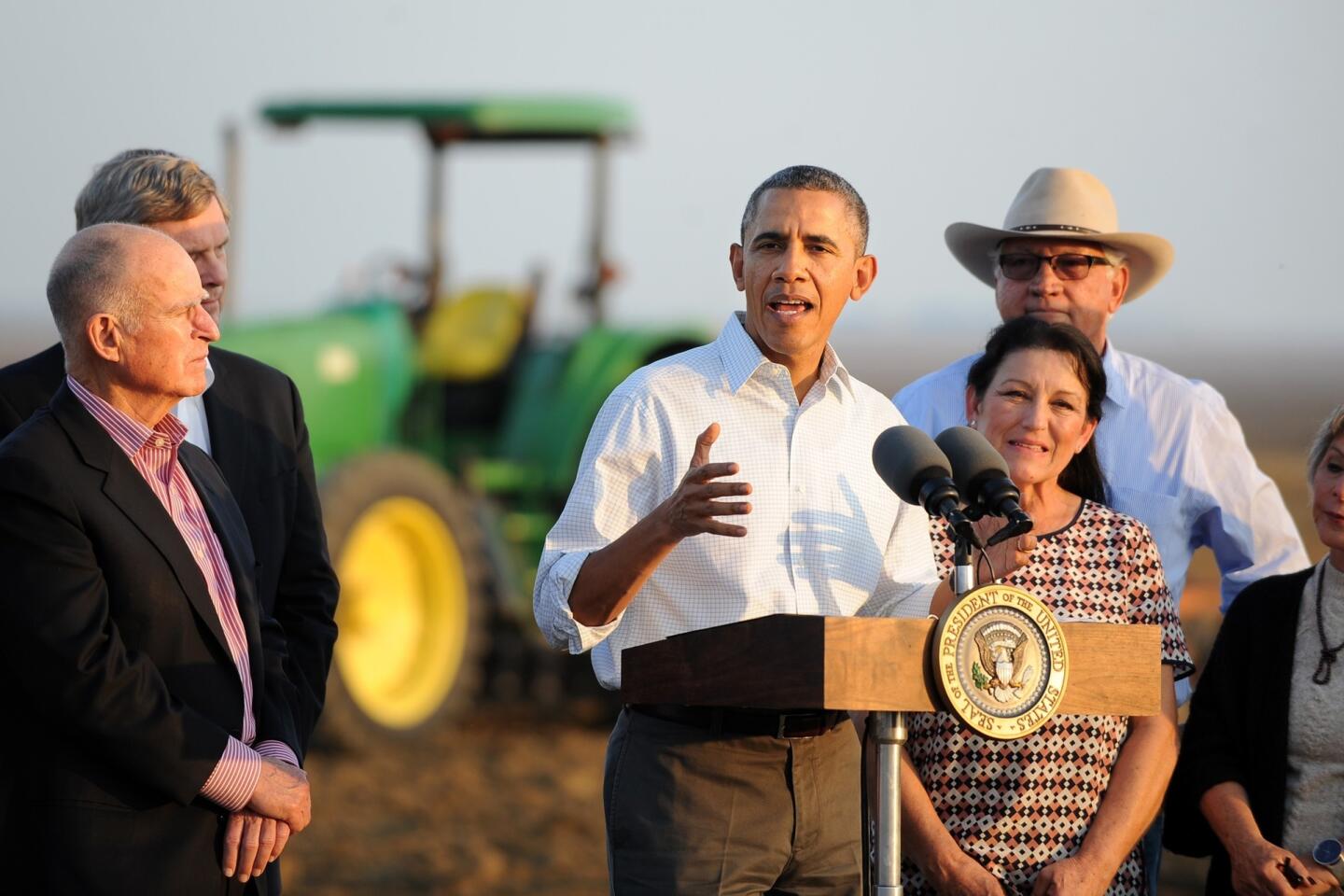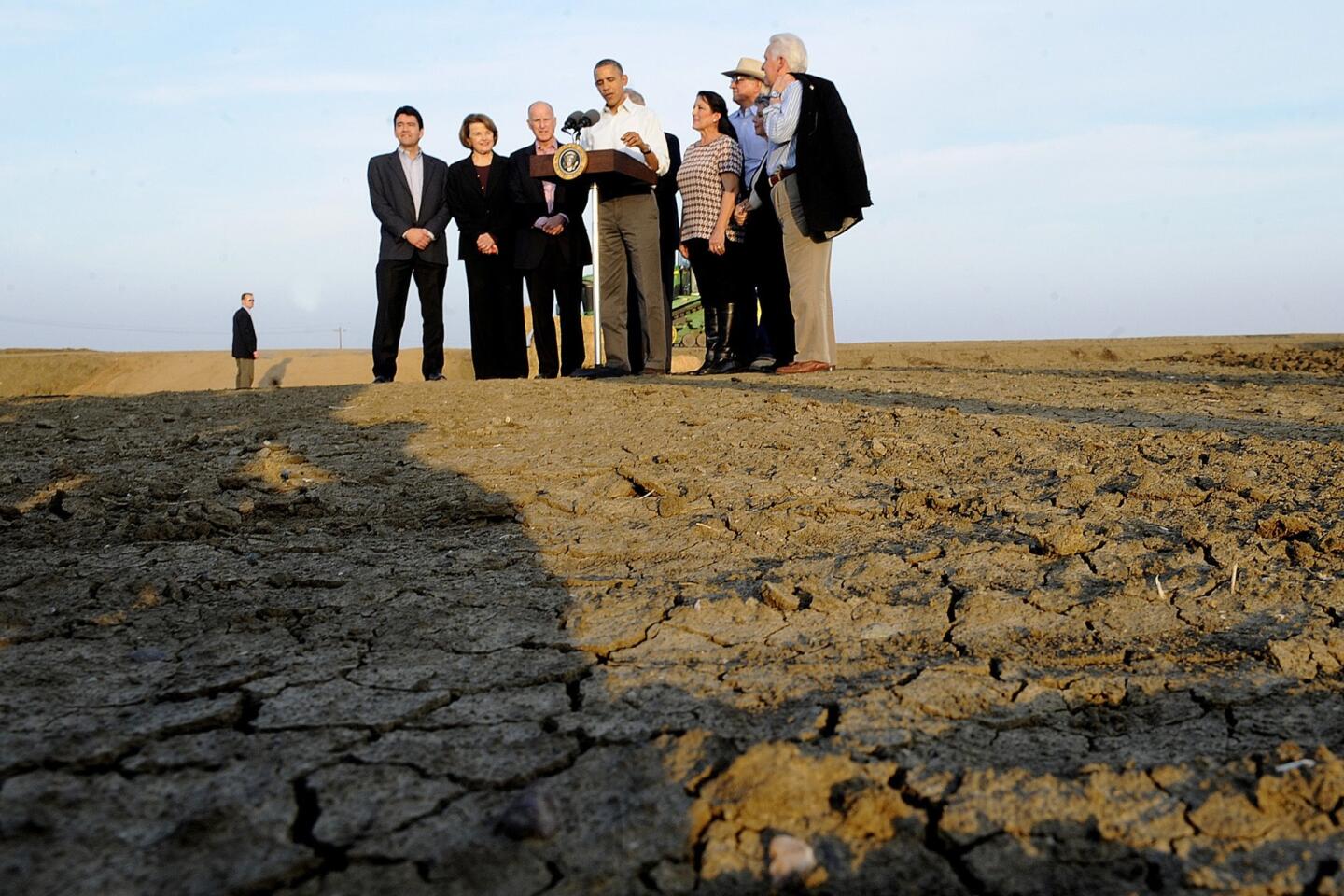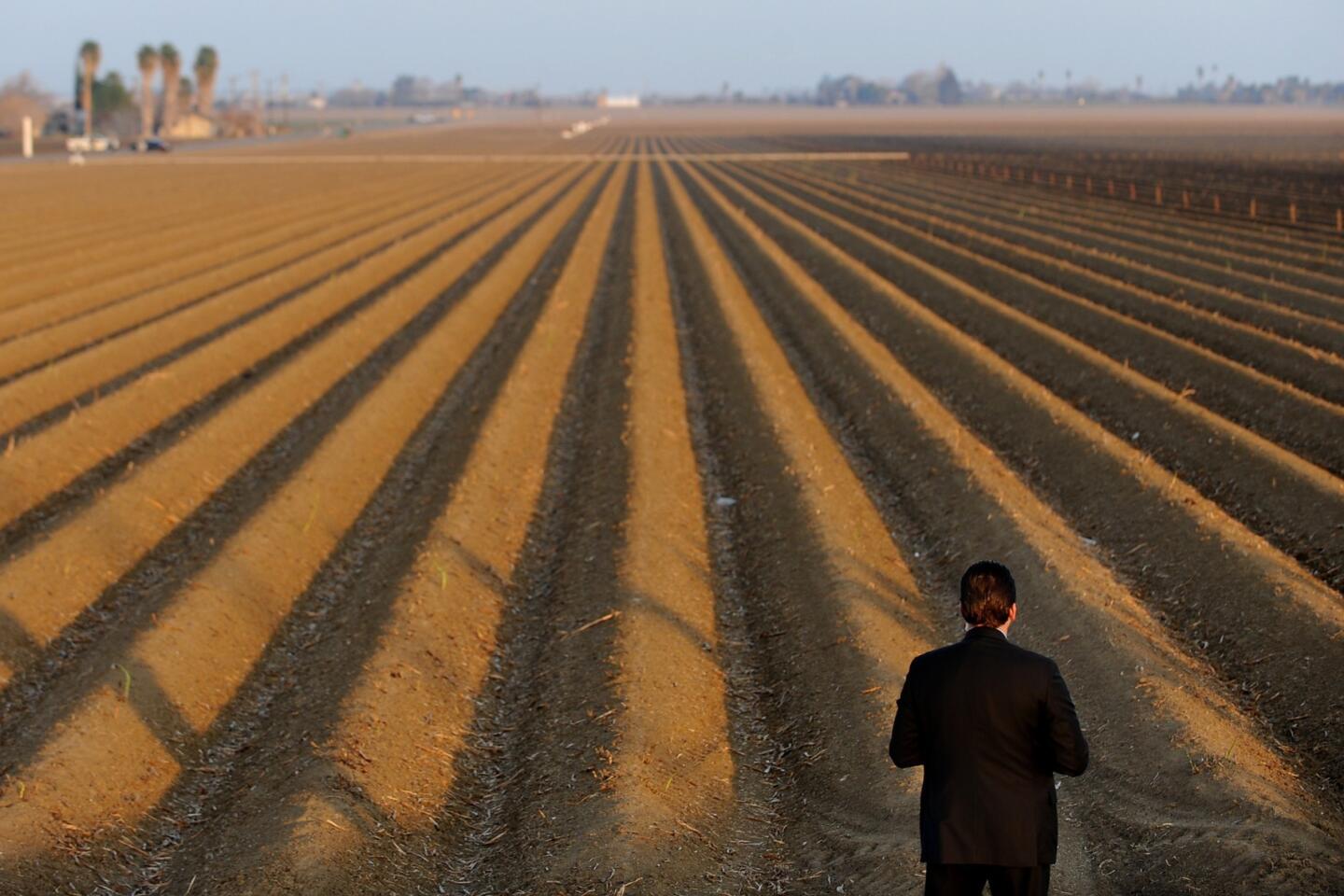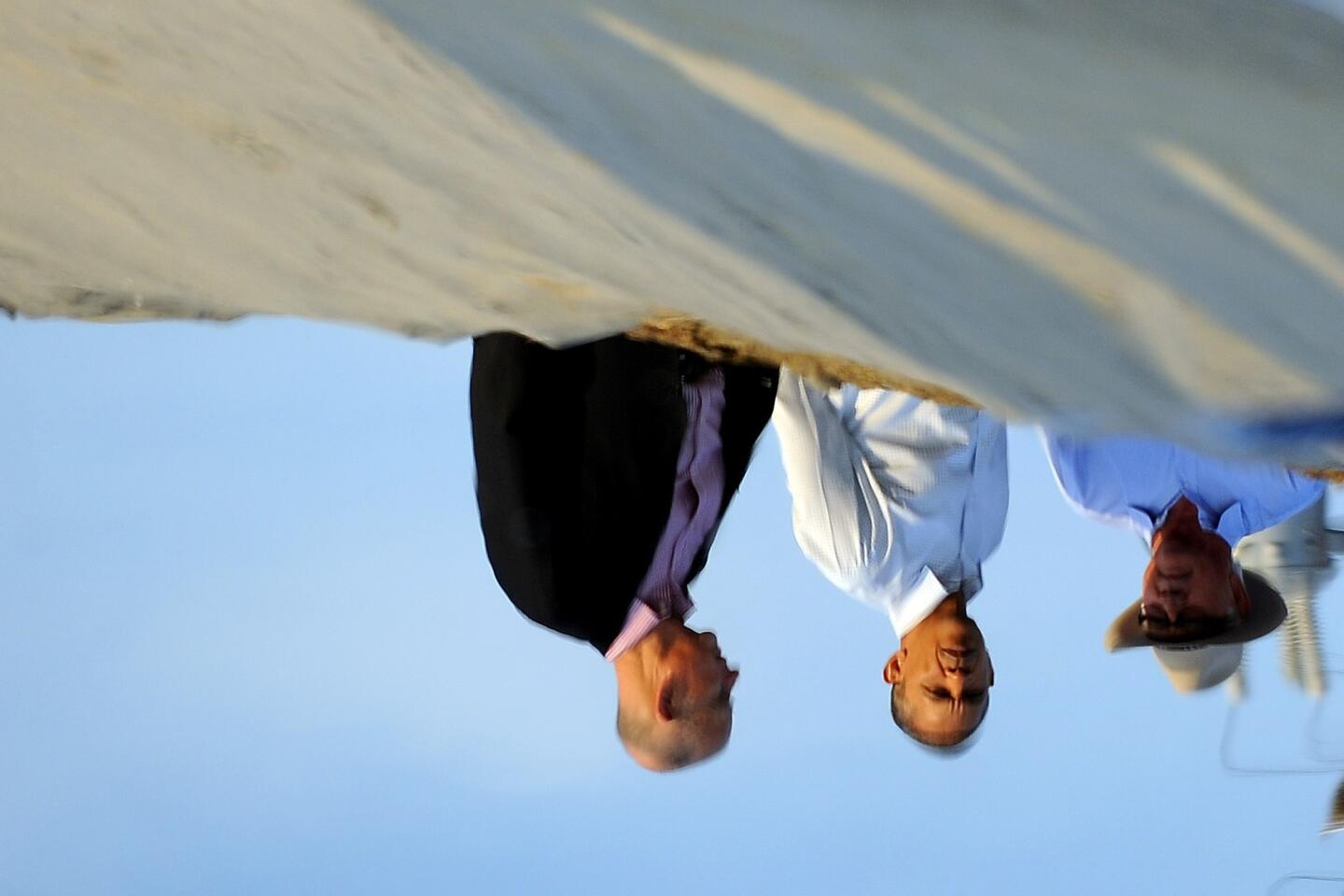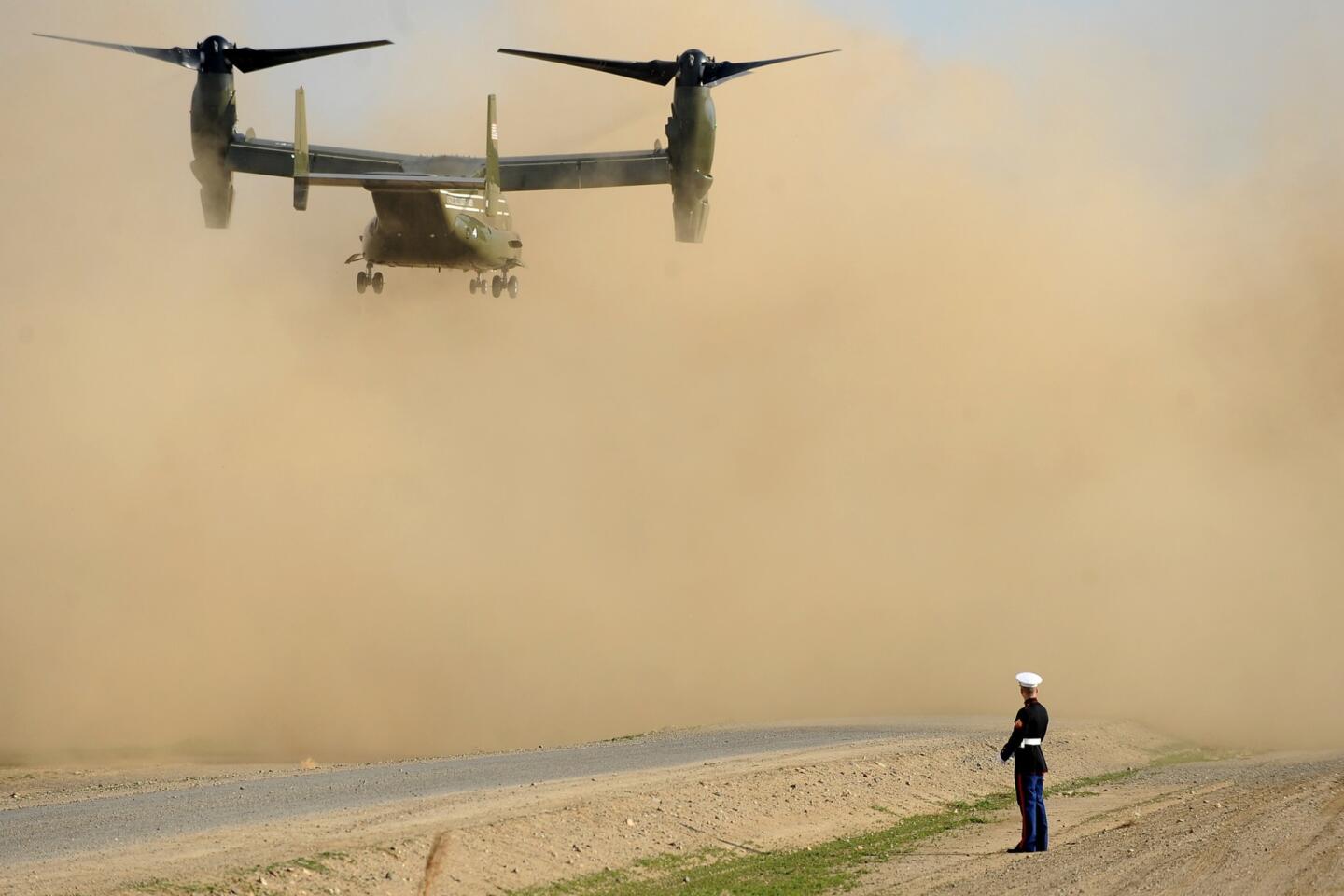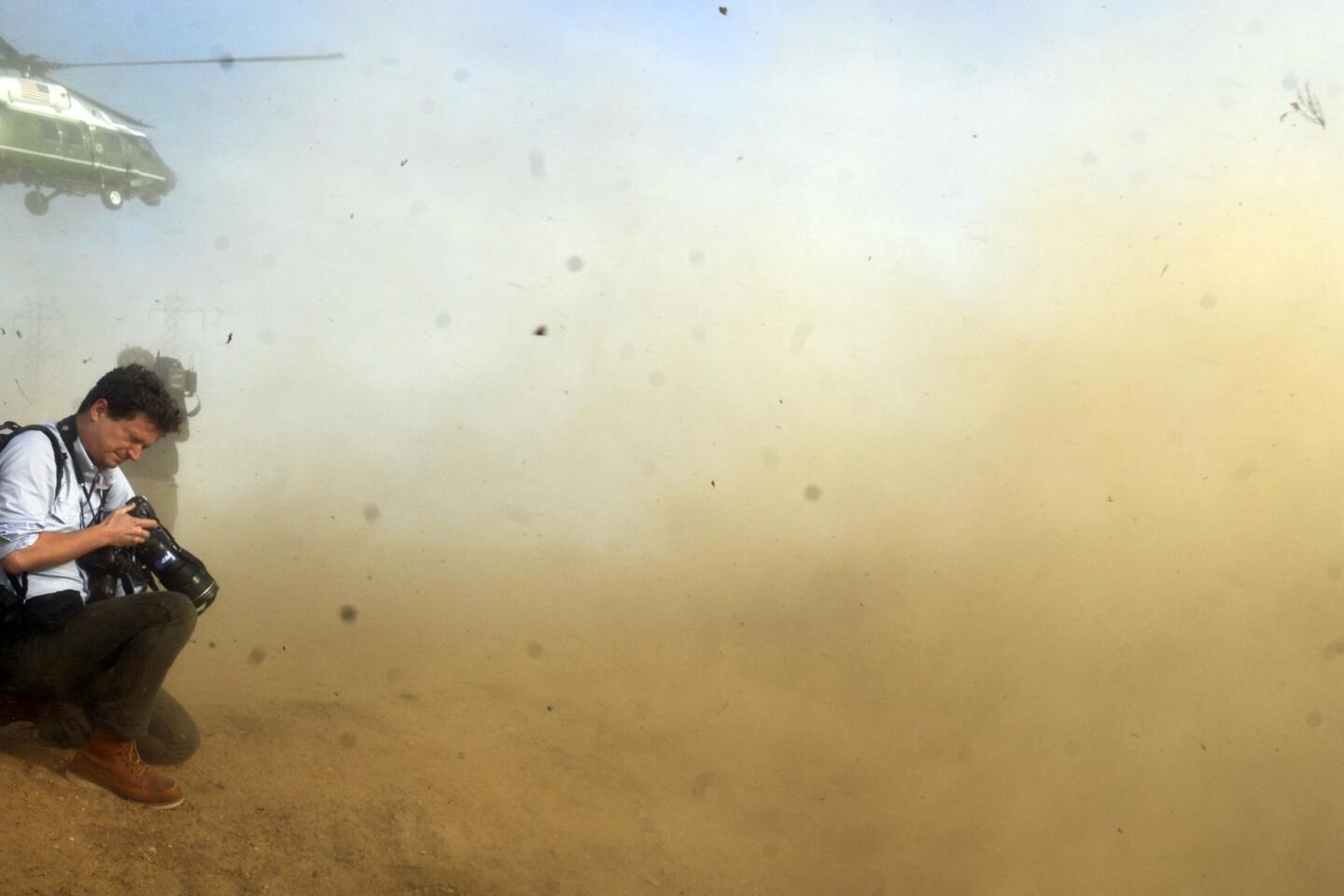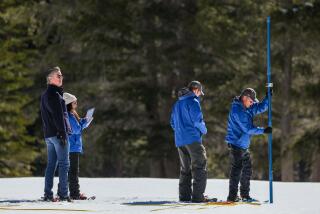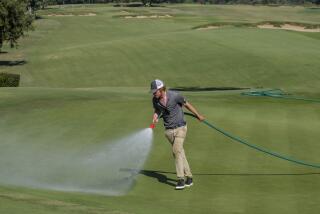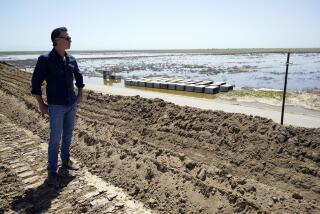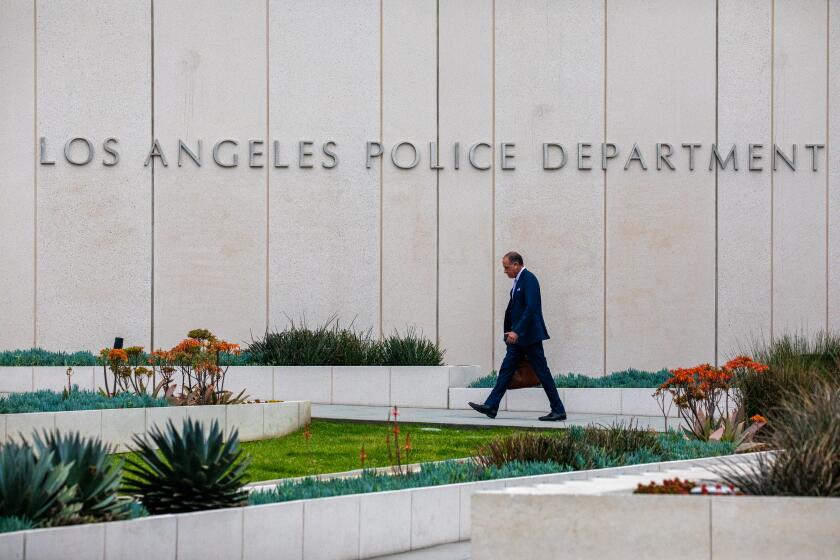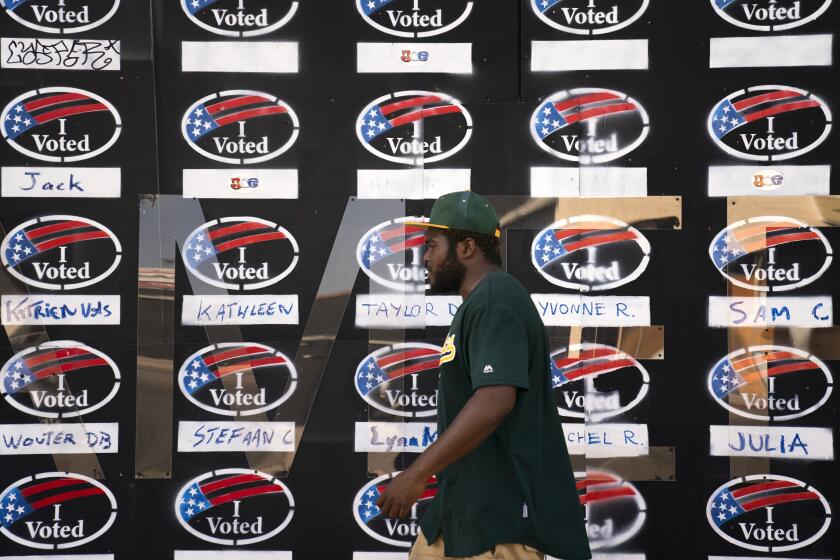In parched Central Valley, a message of aid and a warning from Obama
FIREBAUGH, Calif. — Standing Friday afternoon on cracked, parched earth where melons would usually grow, President Obama brought both a message of aid and an ominous warning to drought-stricken California as he outlined more than $160 million in federal assistance.
The directives include aid for ranchers struggling to feed their livestock because of the drought, and for food banks serving families in hard-hit areas. Obama also called on U.S. government facilities in California to curb water use.
“These actions will help. But they’re just the first step,” he said. “We have to be clear. A changing climate means that weather-related disasters like droughts, wildfires, storms [and] floods are potentially going to be costlier and they’re going to be harsher.”
Obama arrived in the Central Valley at a time when highway signs statewide are flashing “Serious Drought, Help Save Water” and farmers are letting fields of row crops go fallow in hopes of saving orchards.
At a round-table discussion with labor leaders, farmers and water district representatives who had personal and generational histories of fighting for resources, Obama iacknowledged California’s fraught water fights.
“I’m here to listen,” he said. “I’m not going to wade into this. I want to get out alive on Valentine’s Day.”
But he then spelled out an agenda in direct opposition to that proposed by House Republicans who have called for dismantling environmental regulations that they say cripple farmers.
Obama tied the drought directly to global warming: “Unless and until we do more to combat carbon pollution that causes climate change, this trend is going to get a lot worse.”
Republicans have seized on voter anger over water rationing in and around the Central Valley, seeing it as an issue that could help tilt congressional midterm elections their way in several swing districts.
House Speaker John A. Boehner (R-Ohio) traveled to Bakersfield last month to declare that environmental rules favored by Democrats have created an untenable situation for farmers. Soon after, the House passed a measure to divert some of the state’s dwindling water supply their way.
The plan resonates in parts of the Central Valley, which are facing crippling unemployment as a result of the drought. Its supporters include Rep. Jim Costa (D-Fresno), who broke with his caucus to vote for the GOP plan.
But it drew heated opposition from the bulk of California’s congressional delegation, which is dominated by Democrats. They warn it would amount to stealing water from their constituents and giving it to the state’s big agricultural interests. Sen. Dianne Feinstein and Sen. Barbara Boxer, both California Democrats, produced their own plan.
The Senate proposal resembles the kind of action Obama announced Friday. It provides emergency grants and other funds, and leverages existing federal resources in an effort to ease the pain of the drought.
The proposals leave endangered species rules intact despite GOP demands that Congress put “people before fish.”
“Without substantive changes to burdensome environmental regulations, the well-being of fish will continue to be placed ahead of the well-being of our Central and Southern California communities that rely on critical water supplies to survive,” Rep. Kevin McCarthy (R-Bakersfield), the No. 3 Republican in the House, said in a statement Friday.
Caught in the crossfire is Gov. Jerry Brown. Drought politics threaten to damage the prospects for his long-term plan to construct two 35-mile tunnels that would divert as much as 67,500 gallons of water every second from the Sacramento-San Joaquin Delta to thirsty cities and farms to the south. The GOP drought proposal, which would send more water to Central Valley farms in these scarce times, has helped mobilize the environmentalists fighting Brown on the tunnels.
After participating in the round-table discussion here, Obama headed to the farm of Joe Del Bosque, who idled more than 2,000 acres last year and has been an outspoken critic of delta regulations that divert water from farmers.
Del Bosque, in denim shirt and white straw hat, walked with Obama past canals and fields, waving his hands as he talked. The president bowed his head and listened to Del Bosque, the son of a migrant farmworker who became a major producer.
Their walk ended at a presidential podium on barren land where the president extolled California’s agricultural bounty.
“What happens here matters to every working American, right down to the cost of food you put on the table,” Obama said, urging a cooperative effort to ensure that “agricultural needs, urban needs, industrial needs, environmental needs and conservation concerns are all addressed.”
Marcum reported from Firebaugh, Halper from Washington. Christi Parsons of the Washington Bureau contributed to this report.
More to Read
Sign up for Essential California
The most important California stories and recommendations in your inbox every morning.
You may occasionally receive promotional content from the Los Angeles Times.

